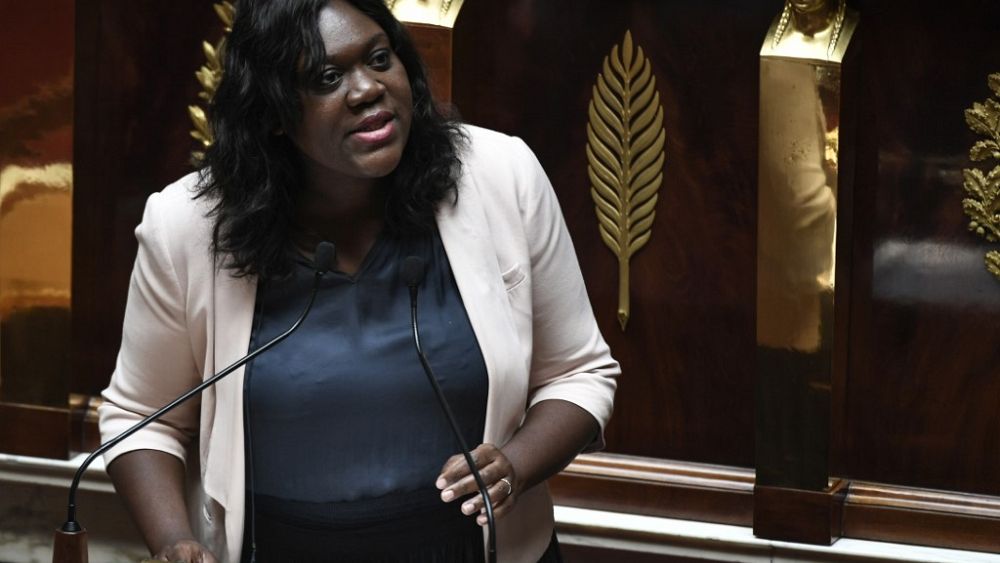Since the beheading of teacher Samuel Paty, debate on strengthening restrictions surrounding online hate speech and extremism has raged in France.
Prime Minister Jean Castex said Tuesday he wanted to “take up the subject” by making “endangerment by the publication of personal data” on the internet a crime.
Meanwhile, the minister for citizenship, Marlène Schiappa, summoned the French representatives of social networks to call them to discuss the “fight against cyber-Islamism”.
But the issue is not a new one in France.
Laetitia Avia, a member of the National Assembly for En Marche! (LREM), proposed a bill to tackle online hate speech in May.
However, the bill was partly rejected by France’s Constitutional Council in June, although some clauses were adopted into law, such as an introduction of school classes on hate speech.
Some politicians voted against the bill, fearful of giving censorship powers to private companies like Google and Facebook.
After the decision by the Constitutional Council, Avia said she had been preparing new measures that were in line with concerns and protected “public order”.
“I have been redrafting, I have been rewriting and I now have new solutions that I can suggest to the government,” she told Euronews.
“It’s about protecting everyone on social media,” said Avia.
This week, across France’s political spectrum, members spoke out in favour of more laws on online hate speech, with the President of the National Rally (RN) Marine Le Pen calling for “a number of measures that go in the right direction”.
Particular concern has been voiced about the number of moderators that work for platforms and how much training has been given to them before they monitor online content.
“We need to put pressure on platforms and have laws to make sure everything that we say stays,” said Avia.
“They need to take action, its not only words.”
In the case of Samuel Paty, anti-terrorist police are looking, in particular, at messages exchanged on WhatsApp between the suspect and the parent of a student, which called for mobilisation earlier this month after the teacher did a course on freedom of expression.
Social networks ‘a real scourge’ to the teaching profession
In a press release, Samuel Paty’s colleagues also expressed their “deep concern about the impact of social networks” which they have described as “a real scourge” to their profession.
“The one who is responsible for this attack is the terrorist, it’s not the platforms who are responsible,” Laetitia Avia told Euronews.
“However, they played a part and we cannot deny the part they played.”
European Commission Vice-President Vera Jourova stressed on Monday that the fight against online hate must be accompanied by the “safeguards” necessary to protect freedom of expression.
“Those behind unacceptable messages calling for or justifying murder must be brought to justice,” she said in a statement.
‘Hate knows no borders’
The European executive is due to unveil new legislation in the form of the “Digital Services Act” by December to better regulate tech giants, with particular focus on data management, disinformation and hate speech.
Vera Jourova said that the Commission is working to “ensure that illegal content is removed with the necessary safeguards to protect freedom of expression”.
“Hate knows no borders. We need to respond to it together, in a European way,” she said.
Avia said she hoped that the new EU legislation would be “ambitious” and would impose stronger regulations on platforms.
“We need to go a step further, we need to make sure that every European country … has laws that apply there.
“We cannot just have an internet that everyone uses every day and that is outside the scope of the law, it’s not working.”
The EU also currently has a voluntary “code of conduct” against illegal hate speech, launched in 2016, which has been signed by a range of networks including Facebook, Microsoft, Twitter, YouTube, Instagram, Snapchat, Dailymotion, Jeuxvideo.com and TikTok.
Click on the player above to watch Euronews’ interview Laetitia Avia in The Cube.







